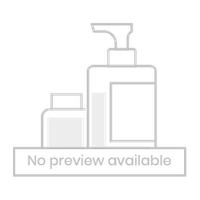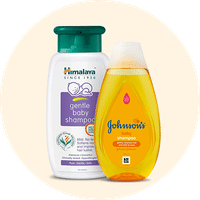Rexidin SRS Mouth Wash
Rs.159for 1 bottle(s) (150 ml Mouth Wash each)
Available in other variants
food interaction for Rexidin Mouth Wash
alcohol interaction for Rexidin Mouth Wash
pregnancy interaction for Rexidin Mouth Wash
lactation interaction for Rexidin Mouth Wash
food
alcohol
pregnancy
lactation
No interaction found/established
No interaction found/established
Rexidin SRS Mouth Wash is generally considered safe to use during pregnancy. Animal studies have shown low or no adverse effects to the developing baby; however, there are limited human studies.
SAFE IF PRESCRIBED
Rexidin SRS Mouth Wash is probably safe to use during breastfeeding. Limited human data suggests that the drug does not represent any significant risk to the baby.
SAFE IF PRESCRIBED
SALT INFORMATION FOR Rexidin 0.2% w/v Mouth Wash
Chlorhexidine Gluconate(0.2% w/v)
Rexidin mouth wash uses
{med_name} is used in the treatment of mouth infection.
How rexidin mouth wash works
Rexidin SRS Mouth Wash is an antiseptic that binds strongly to the surface of teeth, inner cheeks, and gums. It works by killing the harmful microorganisms that cause swollen gums, tartar, bad odor from the mouth, and other mouth infections.
Common side effects of rexidin mouth wash
Taste change, Staining of teeth, Hard Dental Plaque
SUBSTITUTES FOR Rexidin Mouth Wash
163 Substitutes
163 Substitutes
Sorted By
- Hexidine Mouth Wash(80 ml Mouth Wash in bottle)ICPA Health Products LimitedRs. 0.90/ml of Mouth Wash
 Rs. 74.04save 15% more per ml of Mouth Wash
Rs. 74.04save 15% more per ml of Mouth Wash  Rs. 185.16pay 16% more per ml of Mouth Wash
Rs. 185.16pay 16% more per ml of Mouth Wash- Hexidine Mouth Wash(500 ml Mouth Wash in bottle)ICPA Health Products LimitedRs. 0.65/ml of Mouth Wash
 Rs. 330.50save 39% more per ml of Mouth Wash
Rs. 330.50save 39% more per ml of Mouth Wash - Glycoseptol C Mouth Wash(150 ml Mouth Wash in bottle)Jupiter Pharmaceuticals Ltd.Rs. 0.66/ml of Mouth Wash
 Rs. 106.88save 38% more per ml of Mouth Wash
Rs. 106.88save 38% more per ml of Mouth Wash  Rs. 79.69save 25% more per ml of Mouth Wash
Rs. 79.69save 25% more per ml of Mouth Wash
Expert advice FOR Rexidin Mouth Wash
- Use Chlorhexidine Gluconate after meals, it may affect the taste of foods and beverages.
- For maximum effectiveness avoid rinsing mouth (with water or any other mouthwash), brushing teeth, eating or drinking for 30 minutes after using the Chlorhexidine Gluconate.
- Chlorhexidine Gluconate may cause permanent discolouration of some tooth fillings. To minimize discolouration, brush and floss daily, focussing on the areas which begin to discolour.
- Do not mix/dilute Chlorhexidine Gluconate with any other product.
- Avoid contact with eyes and ears. If the solution comes in contact with your eyes, rinse well with water.
- Notify your doctor if you are or planning to become pregnant or are breastfeeding.
- Use Chlorhexidine Gluconate after meals, it may affect the taste of foods and beverages.
- For maximum effectiveness avoid rinsing mouth (with water or any other mouthwash), brushing teeth, eating or drinking for 30 minutes after using the Chlorhexidine Gluconate.
- Chlorhexidine Gluconate may cause permanent discolouration of some tooth fillings. To minimize discolouration, brush and floss daily, focussing on the areas which begin to discolour.
- Do not mix/dilute Chlorhexidine Gluconate with any other product.
- Avoid contact with eyes and ears. If the solution comes in contact with your eyes, rinse well with water.
- Notify your doctor if you are or planning to become pregnant or are breastfeeding.
Frequently asked questions FOR Rexidin 0.2% w/v Mouth Wash
Chlorhexidine Gluconate
Q. How long should you use Rexidin SRS Mouth Wash?
The duration of use of Rexidin SRS Mouth Wash will depend on the condition it is being prescribed for. If you are using it for gum disease (gingivitis) it may be used for a month. If being used for mouth ulcers and thrush, this mouthwash may be used till 2 days after the symptoms are relieved.
Q. Does Rexidin SRS Mouth Wash stain teeth?
Yes, though it does not occur in everyone, Rexidin SRS Mouth Wash may stain your teeth and tongue. Staining is not permanent and may disappear after discontinuation of treatment. Brushing the teeth with regular toothpaste before using Rexidin SRS Mouth Wash can prevent staining. You should also avoid tannin-containing food and drinks such as tea and coffee.
Q. Does Rexidin SRS Mouth Wash help bad breath?
Yes, Rexidin SRS Mouth Wash is effective in reducing bad breath, which persists for about 3 hours. However, the risk of staining teeth and alteration of taste should be borne in mind before you start using it. Also, use this medicine judiciously.














